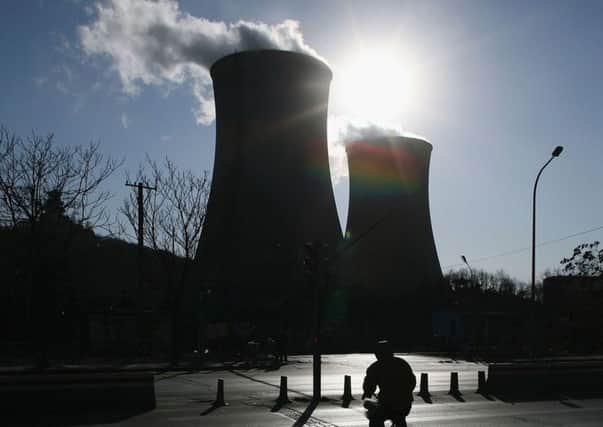We must not fiddle while the rest of '¨the world burns coal


The worldwide reserves of coal average 109 years, ranging from 262 years in the US, 439 for the Russian Federation and 218 for Germany, down to 30 years for China.
China plans to increase coal usage by 20 per cent over the next three years, while coal will provide more than half of the country’s energy mix by 2020. Meanwhile, India has now become the second-largest coal producing country in the world behind China.
Advertisement
Hide AdAdvertisement
Hide AdChinese, Indian, African and European nations will continue to use coal for a simple reason – it is inexpensive and produces cheap electricity compared with expensive renewable electricity. Cheap electricity drove the Industrial Revolution and developing countries will do the same to improve the living standards of their people.
Cheap energy comes from fossil fuels – not from expensive, heavily subsidised wind or solar energy.
Do the opponents of fossil fuels really believe that fossil fuels will be left in the ground? The UN Climate Change conference in Paris in November 2015 succeeded only in getting promises – not firm commitments – for reductions in greenhouse gas emissions. The UK, which has the only legally binding Climate Change Act in the world, was the exception. Those promises were only half the level that scientists insist are necessary.These promises will not be monitored, but reviewed every five years.
China, the world’s largest creator of CO2 with 28 per cent of global emissions, has only promised to stop increasing emissions by 2030, not reduce them. The Paris promises can and will be broken.
The US is responsible for 16 per cent of global emissions. However, new President Donald Trump does not see future global warming as justifying measures that kill off jobs and curb economic growth, saying: “America is not going to be bound by the Paris climate agreement and we are not going to phase out fossil fuels.” So the two largest nations responsible for 44 per cent of the world’s emissions refuse to commit.
In December the Global Warming Policy Foundation published a report, derived from government figures, revealing that Britain’s Climate Change Act 2008 will have cost the country £319 billion by 2030.
The scaremongering predictions by environmental doom-mongers have proved to be wrong time and time again –Al Gore claimed cities around the world could, at some point, be submerged by sea levels rising by 20 feet. The rest of the world will continue to burn fossil fuels to grow their economies.Britain must repeal the destructive and mega-expensive Climate Change Act 2008.
l Clark Cross CA, FCMA, CGMA, retired chartered accountant, Linlithgow